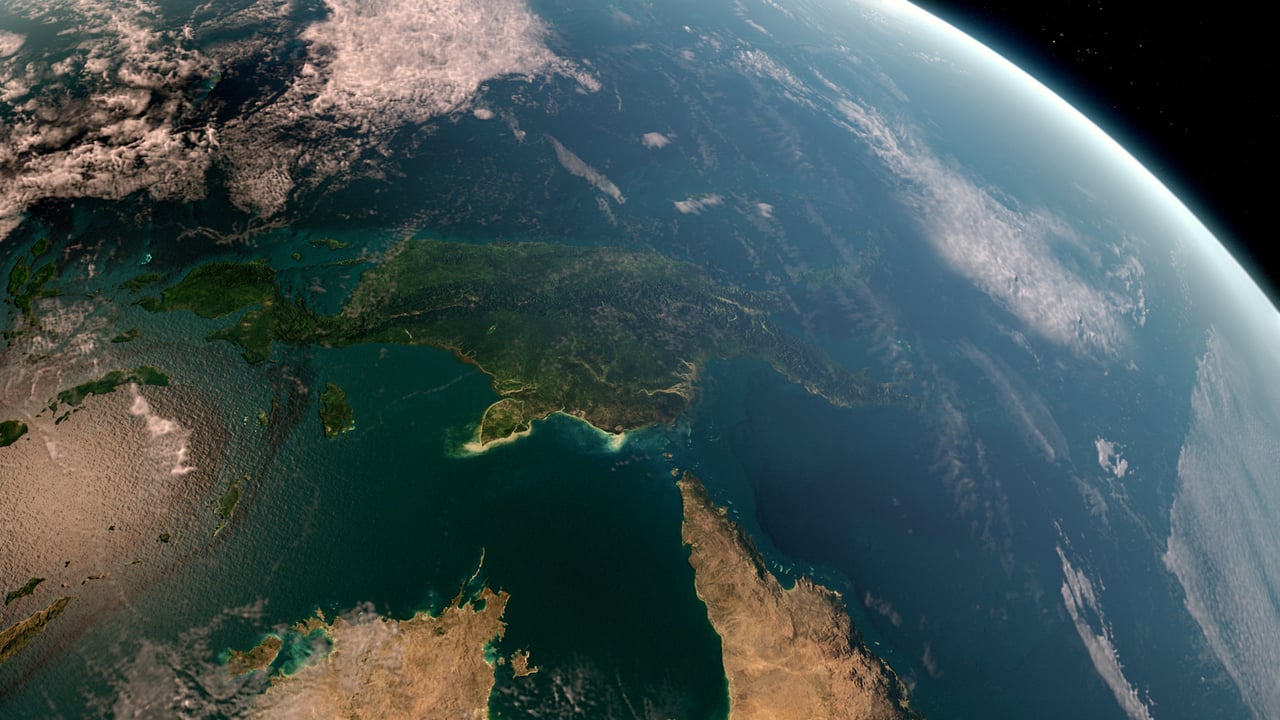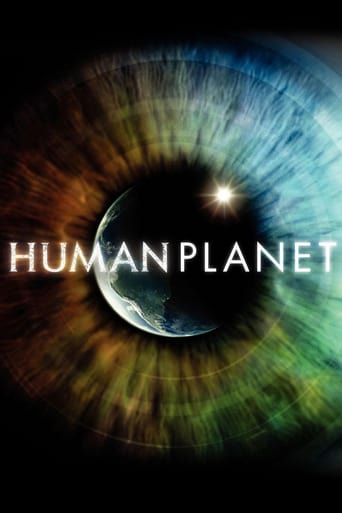Robert Joyner
The plot isn't so bad, but the pace of storytelling is too slow which makes people bored. Certain moments are so obvious and unnecessary for the main plot. I would've fast-forwarded those moments if it was an online streaming. The ending looks like implying a sequel, not sure if this movie will get one
Roy Hart
If you're interested in the topic at hand, you should just watch it and judge yourself because the reviews have gone very biased by people that didn't even watch it and just hate (or love) the creator. I liked it, it was well written, narrated, and directed and it was about a topic that interests me.
Lidia Draper
Great example of an old-fashioned, pure-at-heart escapist event movie that doesn't pretend to be anything that it's not and has boat loads of fun being its own ludicrous self.
Staci Frederick
Blistering performances.
TxMike
I managed to access this 8-episode series on Netflix streaming movies. John Hurt narrates and does it so well, his enunciation is impeccable and adds nicely to the presentation.What they have done here is develop a series of approximately 45- minute episodes, presumably to play (with commercials) in a 60- minute TV session. Each episode is on a distinctly different aspect of our planet Earth. It starts with "Oceans - Into the Blue" and goes on with such diverse topics as the Arctic, the Desert, the Trees, the Mountains, and ending up with Urban living.In most of the episodes it takes us to places we likely know little or nothing about, and would likely never visit. The sound and cinematography are first-rate and the topics are fascinating. Every episode focuses on one or several cultures that live and survive off the sea or land in ways that most of us could never imagine. One of the best documentaries I have ever had the pleasure of watching. Our Earth and the people in it are fascinating!The last episode focuses on urban life and is quite a contrast to the others. Where we see many remote, indigenous tribes living off the land, where nothing goes to waste, in our urban areas we are very wasteful, both food and energy. It is a cautionary message, we need to take care of our planet Earth or we may destroy it. In addition are separate 5 to 10 minutes features for each of the 8 episodes, showing what the filming crews had to go through to get some of the spectacular shots we see throughout. For me, a long-time photographer, those short documentaries are equally interesting. On Netflix streaming they are contained in a separate program.
saikatbarman2007
this is worth watching, its like, learning the ART of SURVIVAL, we humans are so much adaptive to any situation & environment i didn't know till i watched this series, awesome captures & shots, i salute the crew to take such risks of their lives to bring us these huge ocean of knowledge! the most amazing thing was, the isolated tribes, living in the deep forests, about whom we had very less knowledge, & i wonder how the crew members managed to shoot there & how they communicated with them, difficult task; & i really appreciate their shooting of a tribe which was unknown to the human society till date, they did the shot from an aeroplane, above the dense forest. the shots under the water, above the high mountains, in the planes, everything is so perfect, so brilliant, i just want to say, thanks for bringing these to us.
markdroulston
BBC's epic eight-part documentary series Human Planet is a fascinating celebration of humanity's ability to adapt to all environments across the globe, from the comfort of modern cities to the outright hostility of jungles, oceans, and the frozen wastes. Typical of the BBC, the footage contained in each episode is some of the most spectacular yet to be filmed, taking full advantage of improvements in filming technology and accessibility to remote regions. Each episode (covering Oceans, Deserts, Arctic, Jungles, Mountains, Grasslands, Rivers, and Cities) tells several stories relating to how communities survive in their particular environments, and the lengths people go to live in some truly difficult places is at times humbling and deeply admirable. Where Human Planet shines most is when it focuses its gaze on the more remote people of our planet. Whether displaying the tribal courting rituals of the Wodaabe people in Niger, the mussel gatherers of Arctic Canada, or the monkey breastfeeding of the Awá Guajá in the Amazon, each episode manages to highlight the remarkable existences carved by communities well outside of our seemingly civilized world. Actor John Hurt delivers the narration with appropriate gravitas, delicately pitching whatever tone is most appropriate for the images on screen, whether dramatic or whimsical. That said, Hurt is merely an acceptable second choice, and Human Planet could certainly have been improved had legendary documentarian David Attenborough been involved. Whatever the reasons for Attenborough's absence, it also in a sense highlights what many people will no doubt have problems with concerning this series. With previous series such as Planet Earth or Life, the BBC have removed humanity's presence from their footage as much as possible, yet here we are placed at the centre of the narrative, and, while certainly interesting, pointing the cameras at us isn't always the most pleasant feeling. Human Planet pulls back the curtain a little on previous BBC nature shows, and the sense that there are always people lurking just outside the frame, ready to swoop in and exploit the natural world is a little unsettling. For the most part, the indigenous people the series focuses on are taking what they need out of necessity rather than greed, but there are hints about the destruction we are causing to our planet. The final episode, Cities, is the most illuminating in terms of the damaging effects of humanity's spread, but clearly this was not the intended purpose for this series. There is much unsaid, but in the end Human Planet is a worthy addition to the BBC's vast catalogue of nature documentary series, and has infinitely more value than the majority of what's on our TV screens today.tinribs27.wordpress.com
Mehmet Fatih Uzuner
BBC did again. BBC took us on a fascinating journey. A journey that no one wants to go back. A journey to ourselves. A journey to our home. No TV, no internet, no capitalism, no monetary system, no armies, no racism...in this house everyone is the one and unique. this is just amazing...ape feeding women, people in the desert, people in the jungle, people living in the most difficult conditions, hidden tribes - they will be hidden forever ı hope- People who live with the animals. This documentary series is a culmination. and the music was amazing. thanks to everyone who worked in this documentary seriesThis is the remember ourselves

